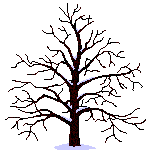Critical thinking competency in ecological practices.
 |
|
"Ecology has been isolated within biology departments as though it had little or nothing to do with the social sciences, the humanities, or the professions. The result is a pervasive anthropocentrism ( human obsessed ) that manifests the roles of humans and their ideas, . . . that assumes nature to be infinite, and human ingenuity to be the ultimate resource."
|
|
David Orr, Ecological Literacy. pp. 134-135 |
|
"One of the requisites for an ecological comprehension of land is an understanding of ecology, and this is by no means co-extensive with 'education'; in fact, much higher education seems deliberately to avoid ecological concepts. An understanding of ecology does not necessarily originate in courses bearing ecological labels; it is quite as likely to be labeled geography, botany, agronomy, history, or economics. this is as it should be, but whatever the label, ecological training is scarce. "
Aldo Leopold, A Sand County Almanac, (1948).
| anthropocentric | ecologically coherent |

|
|
Meaning
While ecology has developed as part of biology, the study is not merely a branch or subcategory of a larger life science. When it is so limited, the observations and subsequent findings become too narrow for any reasonably effective understanding the world.
Looked at in another way, ecology is central to other studies and links them together as a unit.
Worse, his criticism is that as a branch of biology, ecology has become so narrowly human ["pervasive anthropocentrism"] focused that it misses the role of people in a community of bacterial, fungal, plant and animal life. As part of a multi-lateral, natural consortium, humans look quite different from what they appear when termed a "top level predator" (which we are not), by the older bioecological perspective.
So Orr's argument seen in the light of discoveries of RNA, or denitrifying bacteria, or mycorrhiza that allow forests to thrive in nutrient deficient soils becomes more credible. That is because these examples reveal how nature experiments in ways we can barely imagine. Badly conceived concepts only hamper the kind of effective hypotheses needed to assure we endure with a healthy population in a thriving ecological milieu.
Natural capital | Accounting for natural assets | Worth of ecosystem services